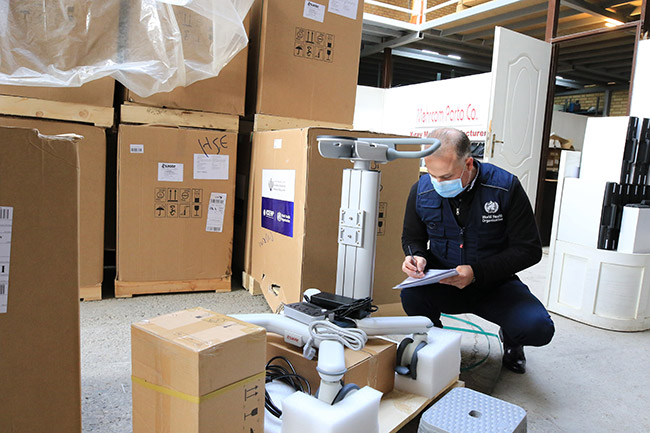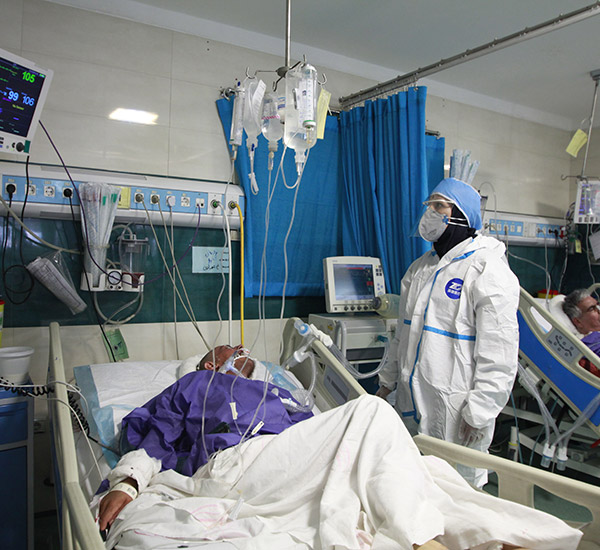Who we are
WHE works closely with the Ministry of Health and Medical Education and other national and international health partners to build and improve IHR capacities required for preparedness and detection and ensure a rapid and effective response to natural and public health emergencies to decrease their impact.
The WHO country office is the technical lead in public health and the COVID-19 response, as it coordinates and collaborates with a wide range of national and international health partners to support the Ministry in all aspects of the operational response. This includes promotion of, and adherence to, technical standards and best practices, and close monitoring of key performance indicators to guide operations. It also includes the global coordination of knowledge-based development and research, to fill vital knowledge gaps. The country office engages with development partners to reduce risks and the vulnerabilities of communities, working towards collective outcomes. During the response to emergencies, WHO and its partners aim to lay the foundation for health sector recovery, based on a systems approach to health care.
What we do

In line with its organizational mandate in health emergencies, the WHO country office ensures implementation of the following actions in order to strengthen the emergency preparedness and safeguard timely and effective response:
Country health emergency preparedness and IHR capacity-building
The IHR (2005) are central within the WHO Health Emergencies Programme of the country office to guide the country towards achieving common approaches and capacity standards in emergency preparedness and response. The country office provides supports to monitor, evaluate, strengthen, and test national core capacities to cope with health emergencies. A great deal of work done by WHO and the Ministry focuses on the interlinkages between health emergencies and health systems. By strengthening IHR core capacities, Islamic Republic of Iran is building the resilience of its health system. Equally, developing responsive health systems is an integral part of IHR implementation – building back better – as it prevents, prepares, responds to, and recovers from emergencies.
Infectious hazard management
WHE aims to ensure that the health system has adequate capacity and strategies to prevent and control risks from high-threat infectious hazards. WHE provides support to the Ministry to monitor health threats, strengthen disease surveillance systems, verify outbreak alerts and conduct field investigations to detect and contain outbreaks through the development of evidence-based strategies to predict, prevent, detect, and respond to infectious hazards. We also support the Ministry in implementing mass immunization campaigns to prevent and control vaccine-preventable epidemic diseases.
Health emergency information and risk assessment
WHE aims to strengthen all aspects of activities related to the systematic detection, verification and risk assessment of emergencies, including building capacity, conducting training, facilitating coordination, and improving the quality of health information and data. Health emergency information and risk assessment includes all aspects of activities for the surveillance, investigation, and response monitoring of public health emergencies, including capacity-building, training, coordination and data management.
Emergency operations
WHE aims to ensure that emergency-affected populations have access to timely and effective health services, including essential packages and public health interventions. This includes ensuring effective and inclusive coordination mechanisms, joint assessments and planning by partners, implementation of operations and services according to agreed standards, and strong logistics and operational support. The expansion and strengthening of operational partnerships is a key priority.
External relations
WHE coordinates all activities related to resource mobilization in securing rapid and sustainable funding for the effective implementation of emergency operations, strengthening donor relations and conducting advocacy to support the implementation of strategic, operational, and incident management action plans.









